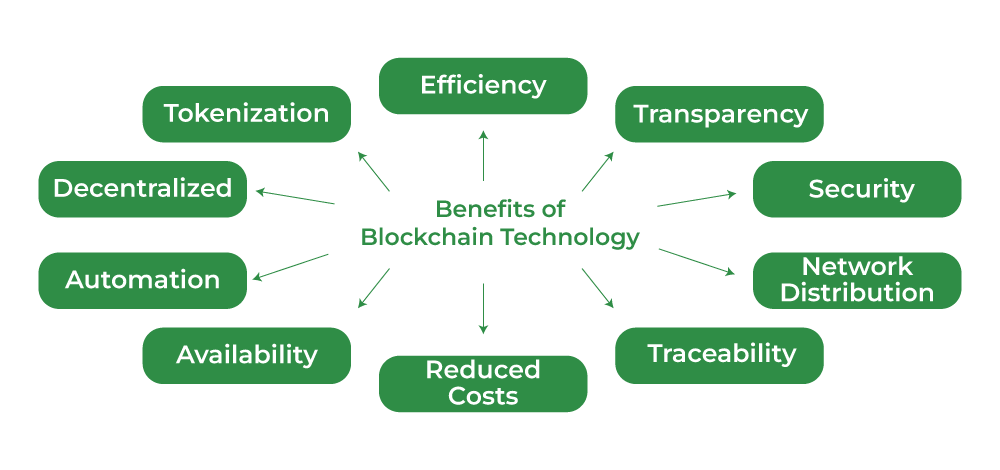Blockchain technology :A decentralized and distributed database system known as blockchain technology securely logs and validates transactions across several computers or nodes. It makes it possible to store data in a transparent and impermeable manner, giving rise to a reliable and unchangeable record of transactions. Blockchain was first established as the underpinning technology for digital currencies like Bitcoin, but it now has uses in many more fields than banking.
Key uses of block chain Technology include:
1. Crypto currencies and Digital Assets: Cryptocurrencies are built on blockchain technology, which enables safe, decentralised digital transactions without the use of middlemen like banks. It makes it possible to manage and transfer digital assets in a safe and open manner.
2. Supply Chain Management: By tracking a product's complete lifespan, from raw ingredients to ultimate delivery, blockchain may improve the supply chain's traceability and transparency. It makes it possible for products to be tracked, verified, and authenticated in real-time, hence preventing crime and commercial fraud.
3. Smart Contracts: Smart contracts on the blockchain are self-executing agreements with predetermined terms. The contract executes itself without the need for a third party once the requirements are satisfied. Legal agreements, claims for insurance, and money transactions are just a few of the areas where smart contracts provide automation, efficiency, and transparency.
4. Identity Management: Blockchain offers a safe, decentralised method of managing identities. By giving people authority over their own private information, it lowers the danger of identity theft and offers a dependable, unchangeable mechanism for identity verification.
5. Healthcare: Healthcare data can benefit from improved interoperability, safety and privacy thanks to blockchain. It permits safe patient record exchange between healthcare professionals, lowers medical fraud, and improves the effectiveness of healthcare procedures.
Benefits of blockchain technology include:
1. Security and Transparency: To guarantee the safety and integrity of data, blockchain uses distributed consensus methods and cryptographic techniques. Transparency and confidence are provided after an operation is recorded on the blockchain since it is very impossible to change or tamper with.
2. Decentralization: Blockchain runs without a central authority or middleman, making it more efficient. As a result, there is less dependency on outside parties, more resilience, and a lower chance of individual points of failure.
3. Efficiency and Cost Reduction: Blockchain improves efficiency by getting rid of middlemen, automating jobs using smart contracts, and allowing for real-time data exchange. This may result in lower costs, quicker transactions, and increased operational effectiveness.
4. Data Integrity and Auditing: Blockchain offers a transaction history that is both unchangeable and auditable. A full and visible audit trail is made possible by the time-stamping and linking of every transaction.
5. Trust and Collaboration: By offering a shared, verified, and impermeable record of transactions, blockchain promotes trust among members. Even when parties don't fully trust one another, it allows for secure and open collaboration.
Although blockchain technology has many advantages, it is crucial to be aware that it also has drawbacks and difficulties, including issues with scalability, power consumption, regulatory issues, and the requirement for widespread industry acceptance.






0 Comments